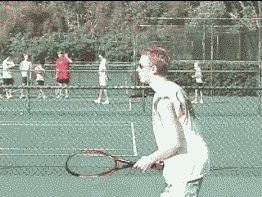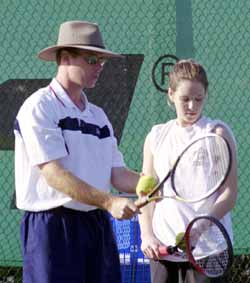<% ns_puts [mkm_getnavbar] %>

Bollettieri
Development
Philosophy
Peter D. McCraw
IMG Academies – Bollettieri Tennis Academy
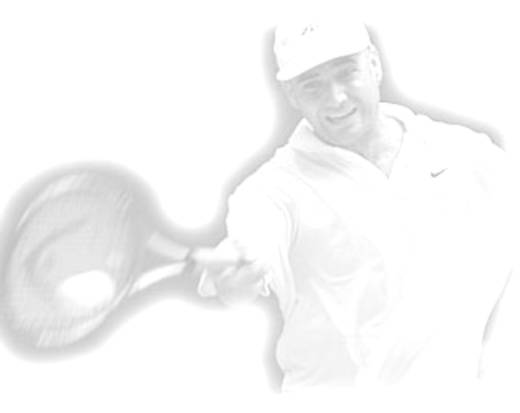 As
a parent or player – how often have you asked your coach to outline his
teaching philosophy on stroke production or strategy and tactics?
How about his long-term plan
for developing an athlete’s real potential.
As
a parent or player – how often have you asked your coach to outline his
teaching philosophy on stroke production or strategy and tactics?
How about his long-term plan
for developing an athlete’s real potential.
I wouldn’t be surprised if this is the first time you have been presented with the idea. After all, coaching certification courses give it a cursory glance at best, and coaches do a good job at giving vague, nondescript answers to players and parents.
Make no mistake – these are not easy questions to answer, nor should they be. Coming to terms with what you really believe is the best course of action to develop a players full potential is a complex task. A task that requires knowledge, experience and a tremendous amount of trial and error. However, the reward of developing a clear philosophy has lasting effects long after your athlete’s tennis dreams and goals have passed.
What I want to do in this first article is outline how we have tried to answer these questions at Bollettieri’s and show how we feel they lead to a training program that has the most possible benefit for our players. After laying the groundwork, I’ll address the whole range of strokes, tactics, and other training elements in subsequent articles in this series.
|
Why is an Overall Philosophy Important
Frankly, I never gave the topic of coaching philosophies much importance. I didn’t need to, or so I thought. I had a clear understanding of what it took to develop a player through the junior ranks to play pro or get a full ride at one of the many collages and universities in North America. What more was there?
At lot more at a place like the Academy with a full-time tennis program catering to over 200 players ranging in age from 8 to 18, and from 20 different cultures. In addition, there is a coaching team of over 25 pros from 12 countries, all working with varying degrees of knowledge, experience and personal coaching styles.
It wasn’t until I encountered this that I began to appreciate how essential a coaching philosophy is. But I want to suggest that all coaches need to address these same critical questions and be able to articulate their own personal answers. If they don’t or can’t, how will you as a student or parent know you are really getting the right training and the most out of the time spent developing your game?
The Challenge
|
Let’s address this issue of coaching philosophy in the context of a working tennis academy. How do you control the quality of instruction on all of your courts? How can you ensure your elite group is not over-trained and the intermediates under-trained? How do you ensure that a player in one group is taught the same thing on the forehand as a player in another? How do you create an environment where any of the coaching team can take another group and continue the development process?
The answer is philosophy. Taking the time to clearly define what your training philosophy is and how to implement it, gives you the ability to monitor and refine your approach to questions like these. Sharing philosophies among fellow coaches and looking for ways to continually improve is a journey worth taking.
What are the stages and the elements in the development process? How do you take players at all ability levels through them? For any coach, these questions are of paramount importance. Your answers should form the foundation from which all decisions, beliefs and principals emanate. Your philosophy should permeate every aspect of teaching, coaching and athletic development. Unless a working coach has answered these questions, he himself will be unaware of how and why his methods are impacting his students.
At IMG Academies we have four distinct philosophies that lay the foundation for each other.
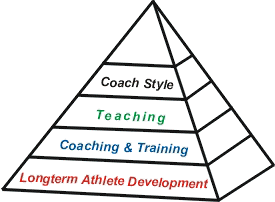 |
Bollettieri Philosophies – What are they?
-
Long-Term Athlete Development Philosophy
-
Coaching & Training Philosophy
-
Teaching Philosophy
-
Coaches Personal Style
Why So Many?
Training and educating children goes far beyond how many forehands and
backhands they hit each day. It
must encompass every aspect of their lives and provide each student with
the opportunity to learn new skills and apply each lesson in their lives
long after they leave us. In short
I am an educator first, coach second, and teacher third.
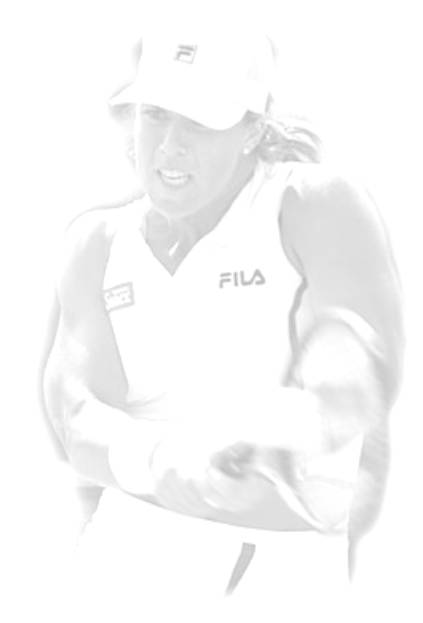 Level 1 - Long-Term Athlete Development Philosophy
Level 1 - Long-Term Athlete Development Philosophy
Our Long-term philosophy encompasses a ten-year window. Research indicates that developing elite athletes is a ten year, or ten-thousand hour process. For the athletes, coaches and parents this translates to slightly more than three hours of deliberate daily practice for ten years.
This time span requires us to have a plan for each stage of development. A plan that can cope with early growth spurts or late maturation socially in a player. Because each stage of development builds upon the other, careful monitoring ensures our players don’t become over-coached and under-developed. A situation where a player reaches the 16 or 18/s age division without a clearly defined style of play and significant technical, tactical, mental or physical limitations. At this stage it is difficult to make up for lost time and rectify the existing skill limitations.
The 4 Stage Model of Long-Term Athlete
Development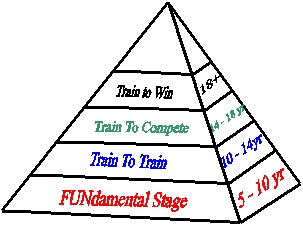
-
Fundamental stage
-
Training to Train stage
-
Training To Compete stage
-
Training to Win stage
We use a broad developmental template, which identifies 4 stages within the ten-year window. This provides our coaches with a tangible reference point from to measure each player’s development. All-in-all, the template provides each coach with a road map of their players long-term development.
Go to Page 2 |
|
Your comments are welcome. Let us know what you think about this article by emailing us here at TennisONE.
Peter D. McCraw
High
Performance Development Coach
IMG Academies – Bollettieri Tennis Academy
He is a member of the USPTA and a Specialist in
Competitive Player Development.
He holds a Post Graduate Degree in Human Movement
from Deakin University – Australia.
Last Updated 5/15/01. To contact us, please email to: webmaster@tennisone.com
TennisONE is a registered trademark of TennisONE and SportsWeb ONE; Copyright 1995. All rights reserved.

